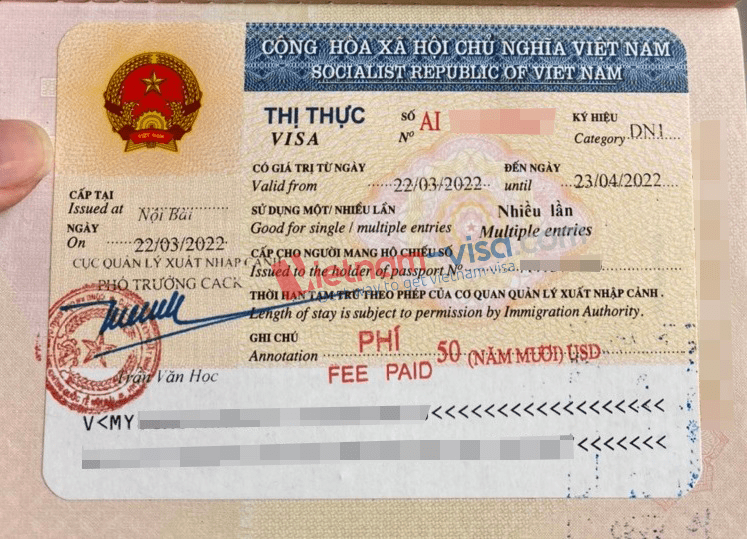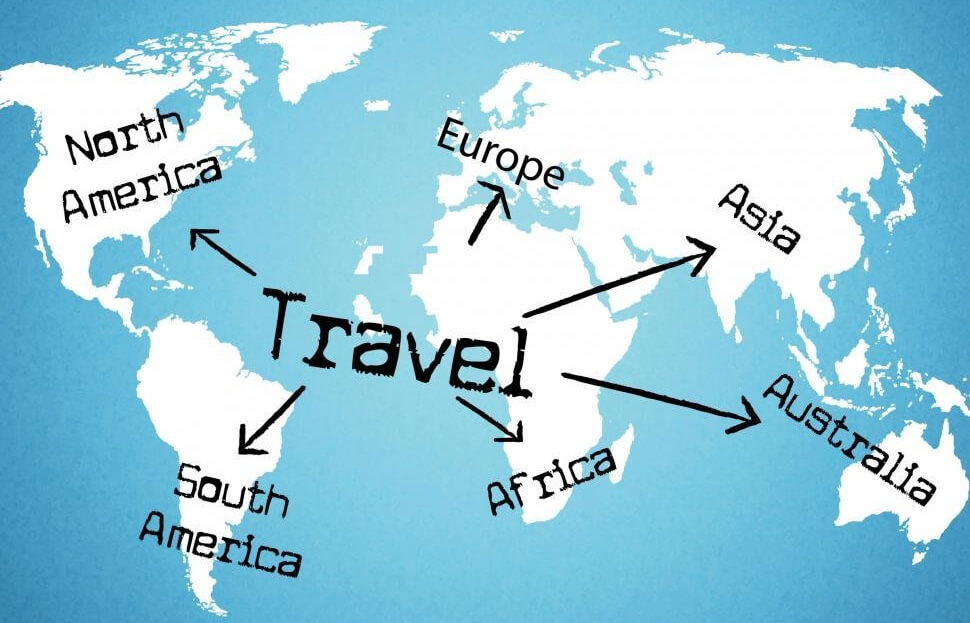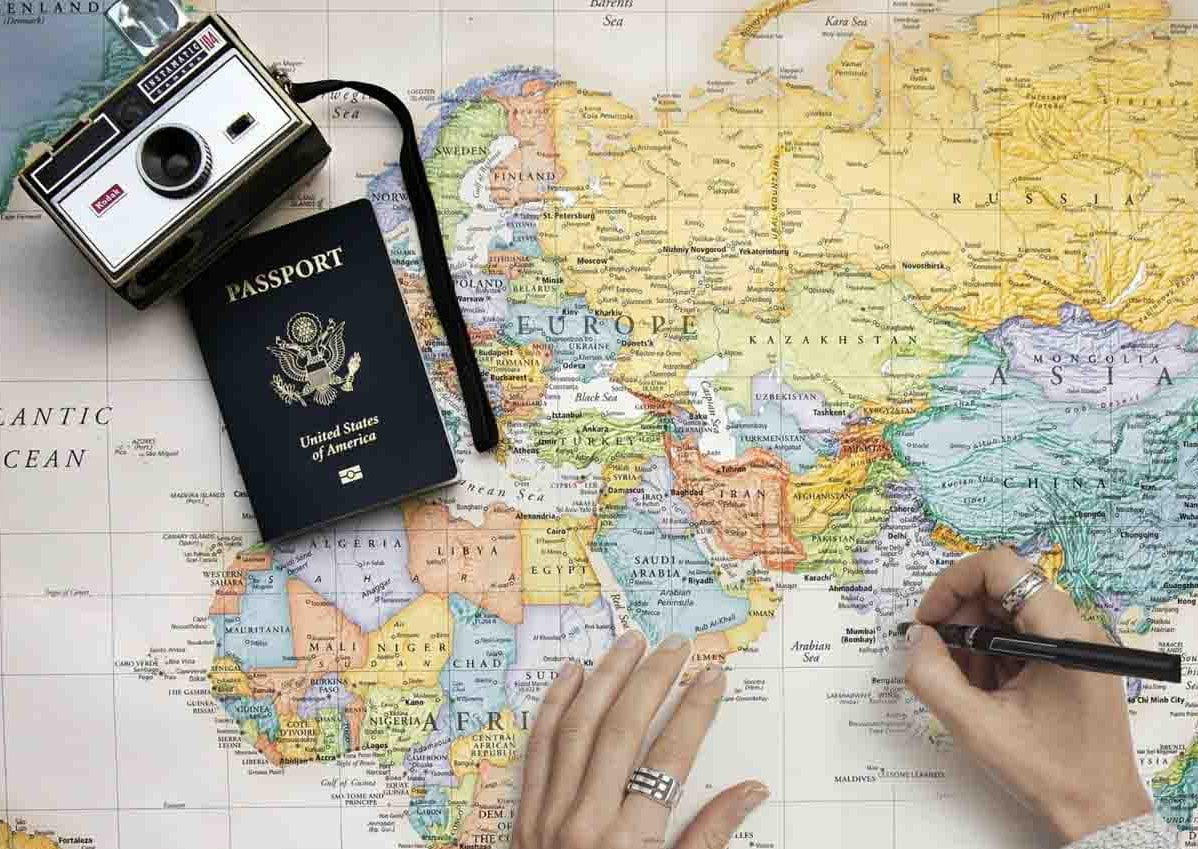Vietnam, a land of breathtaking landscapes, vibrant culture, and rich history, has become an increasingly popular destination for travelers seeking an authentic Southeast Asian experience. With its stunning natural beauty, bustling cities, and warm hospitality, Vietnam offers a diverse range of attractions that cater to every traveler’s taste. One of the key considerations for visitors planning their trip to Vietnam is the visa requirement. In this article, we will delve into the world of Vietnam visa-free travel and explore everything you need to know about exploring this captivating country without the hassle of obtaining a visa beforehand.
Table of Contents
What Is Vietnam Visa-Free Travel?
Vietnam visa-free travel refers to the privilege granted to citizens of certain countries to enter Vietnam without obtaining a visa in advance. This allows eligible individuals to enjoy a designated period of stay in Vietnam for tourism, business, or other permissible purposes without the need for a traditional visa application process.
Who Can Enjoy Vietnam Visa-Free Travel?

Vietnam has established bilateral agreements with several countries, enabling their citizens to visit Vietnam without a visa for a specified duration. The duration of visa-free stays varies depending on the nationality of the traveler and the purpose of their visit. Here are some examples of nationalities eligible for Vietnam visa-free travel:
- Citizens of the United Kingdom: British passport holders can enjoy visa-free travel to Vietnam for up to 15 days.
- Citizens of France, Germany, Italy, Spain, and Belarus: Nationals of these European countries can visit Vietnam without a visa for up to 15 days.
- Citizens of Japan, South Korea, Russia, and Norway: These nationals are allowed visa-free entry to Vietnam for up to 15 days.
It’s important to note that the visa exemption periods may vary, so it is advisable to check the latest regulations before planning your trip.
Advantages of Vietnam Visa-Free Travel

While obtaining a visa is often a necessary step when traveling to foreign countries, Vietnam’s visa-free travel policy offers several advantages for eligible travelers. Let’s explore some of the key benefits:
1. Convenience and Time-Saving
One of the primary advantages of visa-free travel to Vietnam is the convenience it offers. By eliminating the need to go through the visa application process, travelers can save time and effort. This is especially beneficial for those planning short trips or last-minute getaways.
2. Cost Savings
Obtaining a visa can involve fees, paperwork, and sometimes additional expenses such as transportation or mailing fees. Visa-free travel allows eligible visitors to avoid these costs, making their journey more budget-friendly.
3. Flexibility in Itinerary
Visa-free travel gives travelers the freedom to explore Vietnam without strict itinerary constraints. It enables them to make spontaneous decisions on where to go and how long to stay, adding an element of adventure and flexibility to their trip.
4. Easy Entry for Business Purposes
Vietnam’s visa-free policy extends not only to tourists but also to individuals visiting the country for business purposes. This facilitates smoother entry for business travelers, allowing them to attend meetings, conferences, or trade events without the hassle of obtaining a visa beforehand.
5. Opportunity for Quick Stopovers
For travelers transiting through Vietnam en route to another destination, the visa-free travel option presents an opportunity to experience a taste of Vietnam during their layover. They can explore the city, savor local cuisine, or embark on a short excursion before continuing their journey.
Limitations of Vietnam Visa-Free Travel

While Vietnam’s visa-free travel policy offers numerous advantages, there are certain limitations that potential visitors should be aware of. Let’s explore some of the drawbacks associated with visa-free travel:
1. Restricted Duration of Stay
One of the main limitations of visa-free travel to Vietnam is the restricted duration of stay. Depending on your nationality, the visa exemption period may range from 14 to 90 days. If you plan to stay in Vietnam for a longer period, you will need to explore alternative visa options to ensure compliance with immigration regulations.
2. Limited Purpose of Visit
Visa-free travel is generally intended for tourism or short-term business purposes. If your visit to Vietnam involves activities beyond these permissible categories, such as employment or long-term study, you will need to obtain the appropriate visa to ensure legal compliance.
3. Lack of Extension Options
Once the visa-free period expires, it is not possible to extend your stay without leaving the country. If you wish to continue exploring Vietnam beyond the designated visa-free duration, you will need to exit and re-enter the country or apply for a visa extension before the expiry date.
Alternatives to Visa-Free Travel
While visa-free travel is an enticing option for eligible visitors, there are alternatives available for those who do not qualify or prefer a more extended stay in Vietnam. Here aresome alternatives to consider:
1. Visa on Arrival
For travelers who do not qualify for visa-free travel or require a longer stay in Vietnam, the visa on arrival (VOA) option is a convenient alternative. With VOA, you can apply for a visa online before your trip and receive an approval letter. Upon arrival at one of Vietnam’s international airports, you present the approval letter, pay the visa stamping fee, and have your visa issued on the spot.
2. E-Visa
Another alternative is the e-visa, which allows travelers from eligible countries to apply for a visa online through the Vietnamese Immigration Department’s official website. The e-visa is valid for single-entry visits of up to 30 days and offers a streamlined application process without the need for physical paperwork submission.
3. Traditional Visa Application
If you plan to stay in Vietnam for an extended period or have specific purposes such as employment, study, or diplomatic missions, you will need to apply for a traditional visa at the nearest Vietnamese embassy or consulate in your home country. This involves submitting the necessary documents, paying the required fees, and attending an in-person interview if necessary.
How to Make the Most of Your Vietnam Visa-Free Travel?
If you are planning a trip to Vietnam under the visa-free travel scheme, here are some tips to help you make the most of your experience:
1. Research Visa Exemption Periods
As mentioned earlier, the duration of visa-free stays varies depending on your nationality. It is crucial to research and understand the specific exemption period applicable to your country to avoid any potential issues during your stay.
2. Plan Your Itinerary
While visa-free travel provides flexibility, it is still wise to plan your itinerary in advance. Vietnam has an abundance of attractions, from the stunning landscapes of Ha Long Bay to the ancient town of Hoi An and the bustling streets of Ho Chi Minh City. Research and prioritize the places you wish to visit, allowing for ample time to explore each destination.
3. Pack Accordingly
Vietnam’s climate can vary significantly across different regions and seasons. Make sure to pack appropriate clothing and essentials based on the time of year and the specific areas you plan to visit. Don’t forget essentials such as comfortable footwear, sunscreen, insect repellent, and a travel adapter if needed.
4. Respect Local Customs and Etiquette
Vietnamese culture is rich in traditions and customs. Take the time to familiarize yourself with local customs and etiquette to ensure respectful interactions with the Vietnamese people. Simple gestures such as removing your shoes before entering someone’s home or dressing modestly when visiting religious sites can go a long way in showing appreciation for the local culture.
5. Try Authentic Vietnamese Cuisine
Vietnam is renowned for its delicious and diverse cuisine. Don’t miss the opportunity to savor authentic Vietnamese dishes during your visit. From pho (noodle soup) to banh mi (baguette sandwiches) and fresh spring rolls, be sure to sample the local flavors and immerse yourself in the vibrant street food scene.
Conclusion
Vietnam’s visa-free travel option opens up a world of possibilities for travelers eager to explore the country’s natural beauty, cultural heritage, and warm hospitality. By understanding the eligibility criteria, advantages, limitations, and alternatives associated with visa-free travel, you can plan a memorable trip that suits your preferences and complies with immigration regulations. Whether you choose to enjoy a short visa-free stay or opt for an alternative visa option, Vietnam promises a captivating and enriching experience for every visitor.
FAQs After The Conclusion
1. Can I extend my visa-free stay in Vietnam?
No, it is not possible to extend your visa-free stay in Vietnam without leaving the country. If you wish to stay longer, you will need to exit and re-enter or explore alternative visa options.
2. Is visa-free travel available for all nationalities?
No, visa-free travel is only available for citizens of specific countries that have established bilateral agreements with Vietnam. The duration of visa-free stays varies depending on the nationality.
3. Can I engage in business activities during my visa-free stay in Vietnam?
Yes, visa-free travel also applies to individuals visiting Vietnam for short-term business purposes. However, make sure your activities align with the permissible categories and duration of stay.
4. Can I visit multiple destinations within Vietnam during my visa-free stay?
Yes, you are free to explore multiple destinations within Vietnam during your visa-free stay. Take advantage of the flexibility it offers to plan an itinerary that suits your interests and preferences.
5. What should I do if my country is not eligible for visa-free travel to Vietnam?
If your country does not qualify for visa-free travel, there are alternatives such as the visa on arrival or e-visa options. You can also apply for a traditional visa at the nearest Vietnamese embassy orconsulate in your home country. These alternatives allow for longer stays or specific purposes such as employment or study.